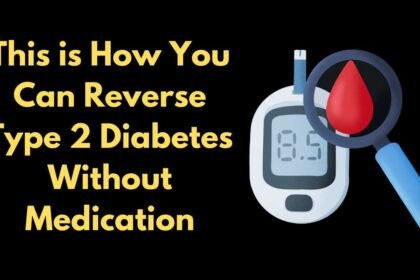Could the answer to better blood sugar control be hiding in your daily supplement routine?
If you’re one of the millions of Americans managing prediabetes or Type 2 diabetes, one powerful nutrient might make all the difference: vitamin D.
Backed by study, this essential vitamin has emerged as a promising tool in regulating blood sugar and insulin levels – especially for those who are deficient.
With nearly one-third of U.S. adults facing a vitamin D deficiency, and millions dealing with blood sugar disorders, the connection between these two health challenges deserves attention.
Let’s explore how vitamin D impacts metabolic health, and how you can optimize your intake for better glycemic control.
Vitamin D Deficiency and Diabetes
In a 2022 Diabetes study, researchers found that 49% of individuals with Type 2 diabetes are vitamin D deficient.
For women, that number climbs even higher to 57%. These numbers are more than statistics – they’re a warning sign.
Further complicating matters, 29% of U.S. adults are vitamin D deficient, while 37% are prediabetic, and 22 million are already diagnosed with Type 2 diabetes.
The overlap is striking, and recent research suggests it’s not coincidental. Vitamin D isn’t just crucial for bone health and immunity – it plays a critical role in metabolic function, especially in those vulnerable to insulin resistance.
How Vitamin D Helps Regulate Blood Sugar and Insulin
So, how exactly does vitamin D support blood sugar regulation?
According to a 2017 review published in the Journal of Steroid Biochemistry and Molecular Biology, the active form of vitamin D3 (1α,25-dihydroxyvitamin D3) helps stimulate pancreatic beta cells, which are responsible for insulin production.
Insulin is essential for managing how the body processes carbohydrates, fats, and proteins.
In people with Type 2 diabetes, the body often becomes resistant to insulin, or the pancreas struggles to produce enough of it – leading to elevated blood sugar levels.
When vitamin D levels are low, studies show a clear link to:
- Increased insulin resistance
- Decreased insulin production
- Higher risk of developing Type 2 diabetes
On the flip side, adequate vitamin D3 intake can help:
- Enhance insulin sensitivity
- Improve glucose metabolism
- Reduce the progression of prediabetes
In other words, if you’re managing diabetes or hoping to prevent it – ensuring optimal vitamin D levels may be one of the smartest steps you can take.
Getting Enough Vitamin D Is Not Easy
Despite its importance, getting enough vitamin D isn’t easy.
- Although sunlight is a natural source, factors like:
- Geographic locationSkin pigmentation
- Use of sunscreen
- Indoor lifestyle
limit how much vitamin D your body can produce from the sun alone. And while some foods contain vitamin D (like fatty fish, fortified dairy, and eggs), they often don’t deliver nearly enough to correct a deficiency.
That leaves supplementation as the most practical and effective solution.
This is How You Can Optimize Your Vitamin D Intake
To maintain healthy vitamin D levels, experts recommend a daily intake of 5,000 IU of vitamin D3 – not D2, which is less effective.
Look for high-quality supplements that:
- Deliver vitamin D3 (cholecalciferol)
- Include a built-in source of fat (like MCT oil or olive oil) to improve absorption
- Come with third-party testing and high bioavailability
According to mindbodygreen and other health experts, consistent vitamin D3 supplementation can help individuals reach optimal serum levels (around 50 ng/ml), which is necessary to experience the full metabolic and immune benefits.
For those with prediabetes or Type 2 diabetes, this could mean improved insulin response, better glucose control, and even slower progression of the disease.
Disclaimer
This article is for informational purposes only and does not constitute medical advice. Please consult your healthcare provider before making any changes to your diet or health regimen.












